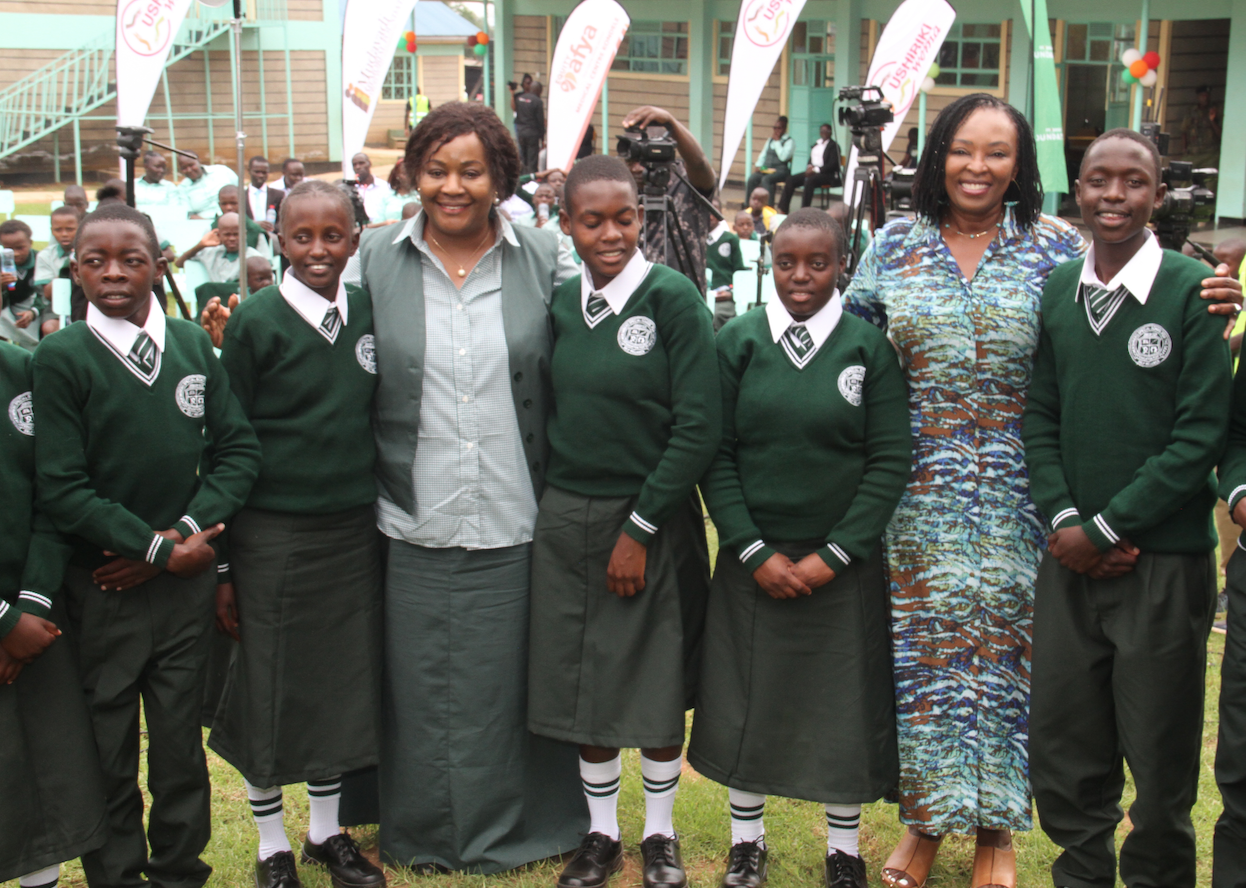

As the fifth World Federation of the Deaf Conference approaches, Kenya is taking steps to ensure the inclusion hearing-impaired learners.
The conference will be held in Nairobi from August 12 to 14.
Ahead of the conference, the Chikombero Special School for the Hearing Impaired was officially handed over on Wednesday, following extensive renovations.
The project has garnered international attention, highlighting Kenya's dedication to promoting sign language and ensuring no child is left behind in the pursuit of education and a brighter future.
Tessy Musalia, the chairperson of Ushiriki Wema Foundation and wife of Prime Cabinet Secretary Musalia Mudavadi, used the occasion to urge the government to incorporate basic sign language into the national school curriculum, underscoring its growing importance in both education and public life.
“Integration is a part of the new Act aligning Kenya’s disability rights to the UN Convention on the Rights of Persons with Disabilities,” Tessy noted, adding that the recently enacted law is a clear indicator of the space sign language is taking up universally.
Kenya's deaf population is estimated at 2.7 million, representing about 5.5 per cent of the total population, making it a significant linguistic and cultural group.
The 2010 constitution recognised Kenyan Sign Language as the country’s third official language.
However, advocates continue to stress the importance of further efforts to fully integrate the language into mainstream education and public services.
M-Pesa Foundation, a part of Safaricom PLC, spearheaded the initiative, investing Sh50 million to modernise the school's facilities.
The refurbishment marks the culmination of a journey that began in 2021 and was executed between November 2024 and June 2025.
The upgrades included the construction of new administration and ECD blocks, fully equipped washroom facilities and a 20-seater ICT lab specifically designed to teach digital skills to deaf learners.
Patricia Ithau, a trustee of the Foundation, highlighted the comprehensive nature of the support, stating that it went beyond just construction.
“We ensured that learners have beds, blankets, and a conducive learning environment.” Additionally, 10,000- and 5,000-litre water tanks were installed to improve hygiene, aligning with the Foundation's mission to foster citizens of the future, which includes digital readiness.
The Foundation has invested more than Sh330 million across 84 projects in Vihiga county, demonstrating a long-term commitment to regional development and inclusive education.
Dr Florence Otieno, a teacher at the school, praised the dramatic transformation.
She described the school's previous condition as "horrible, dilapidated and that the general infrastructure was not conducive for learners”.
“The buildings were not fit for use at all. Today, the environment has changed completely. We now have flush toilets, showers and new uniforms for our learners. They are happy and highly motivated,” Otieno said.
She believes the new facilities will draw more students from the local community and beyond. “This one will impact not only the community here, but also Kenya and even internationally.”
As Kenya prepares to welcome international delegates for the upcoming Deaf Conference, the Chikombero School community stands as a powerful symbol of progress and inclusion.















